The Eternal Moment
The Eternal Moment (1928) by E. M. Forster is a collection featuring the first book appearance of "The Machine Stops," a visionary dystopian tale originally published in 1909. Set in a future where humans live underground and are wholly dependent on a vast "Machine," the story follows Vashti and her son Kuno as they navigate a world with minimal human interaction. Through themes of technological dependence and the loss of individual autonomy, Forster's narrative stands as a timely warning about the perils of an over-reliant technological society
Hardcover. First Edition, First Impression. Octavo, dark red cloth, front and spine panels stamped in black, indicating the second issue binding. London: Sidgwick & Jackson, Ltd., 1928. #10551.
Near fine condition with a slightly toned dust jacket exhibiting two tiny chips at the spine ends. Evidence of a price label removal is present on the front jacket flap, though the original price of 5/- remains visible. Overall, a very attractive copy.

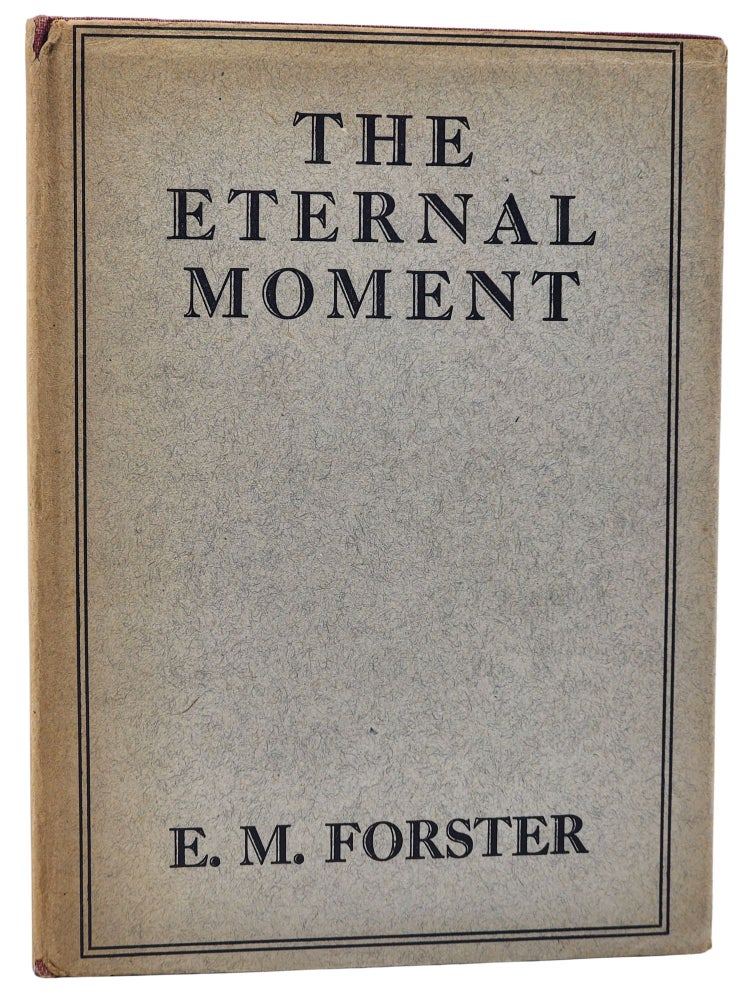
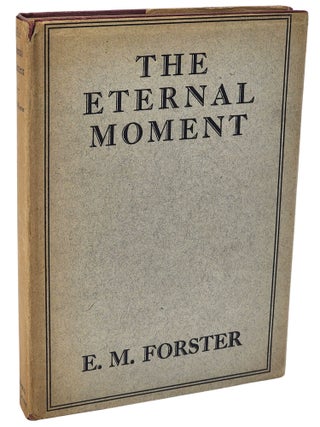
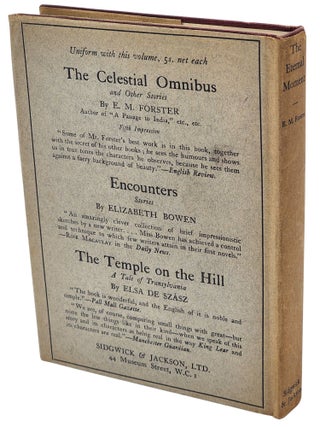


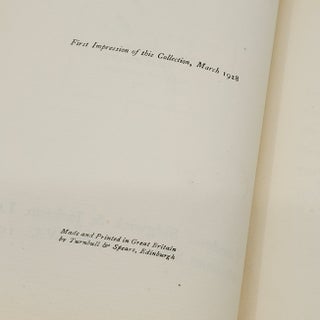
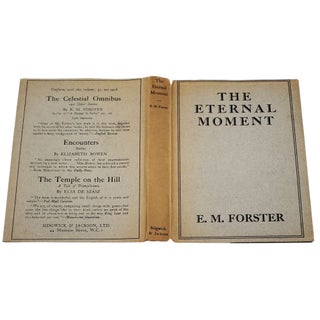

The Eternal Moment is a 1928 collection of short stories by E. M. Forster, the acclaimed English author of novels such as A Room with a View, Howard's End, and A Passage to India. This collection features the first book appearance of "The Machine Stops," Forster's classic dystopian tale, which had its original publication in "The Oxford and Cambridge Review" in November 1909.
"The Machine Stops" is set in a dystopian future where humanity lives underground and relies on a vast, computer-like "Machine" for all its needs. The story follows Vashti, an intellectual lecturer, and her son Kuno, who begins to question the omnipotence and benevolence of the Machine. In this bleak world, direct human interaction is rare, and the surface of the Earth is considered uninhabitable.
Delving into themes like technological dependence, individuality versus conformity, and the consequences of alienation from the natural world, Forster’s tale offers a prescient look at a society growing ever more dependent on technology. Amazingly, Forster even envisions a global messaging system akin to today’s internet. Over a century since its publication, "The Machine Stops" remains profoundly relevant, cautioning against the perils of over-reliance on machines and the growing loss of human connection.